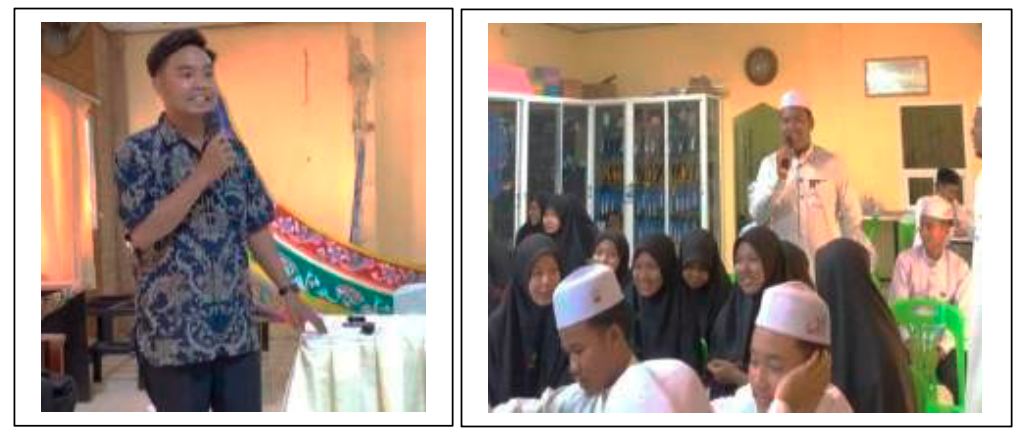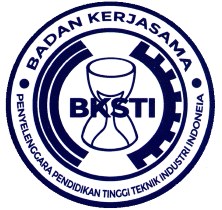International Community Service Program: Enhancing Islamic Financial Literacy in Thai Islamic Boarding Schools
DOI:
https://doi.org/10.12928/spekta.v5i2.11647Keywords:
Islamic Financial, Literacy, Cummunity ServiceAbstract
Background: Samakisast Wittaya School is an Islamic educational institution that inherently integrates Islamic values in its curriculum. This Islamic boarding school not only aims to educate students in religious aspects but also in academic and practical aspects of life, including finance. In Thailand, the Muslim population, particularly in the Sadao region, has limited access to financial education that complies with sharia principles. Introducing sharia financial literacy in Islamic schools such as Samakisast Wittaya School can help overcome this gap. Although Thailand has several Islamic financial institutions, the dissemination of information and understanding about these products and services is still limited, especially among Muslim communities in remote or minority areas.
Contribution: Increasing sharia financial literacy can help students and surrounding communities become more economically independent, opening up opportunities for entrepreneurship in accordance with sharia law. The importance of sharia financial literacy in Islamic educational institutions such as the Samakisast Wittaya School in Sadao, Thailand, is very significant in helping the development of the community as a whole.
Method: The implementation method is through counseling accompanied by interactive discussions. The target is the students of Samakisasst Wittaya School, Sadao, Thailand, totaling 60 students. The problem that arose during the discussion was the issue of the financial attitudes and behavior of students who did not understand correct financial planning, and did not understand the priority scale of primary, secondary and tertiary needs.
Results: The team provides solutions regarding the correct meaning of wealth, saving discipline, and the need to make correct financial planning to achieve individual financial resilience. Conclusion: Community service has opened students' thinking and awareness of the importance of students' financial literacy.
References
V. M. Vijay Kumar and J. P. Senthil Kumar, “Insights on financial literacy: a bibliometric analysis,” Manage. Finance, vol. 49, no. 7, pp. 1169–1201, 2023.doi: https://doi.org/10.1108/MF-08-2022-0371
A. A. B. Shahariman, N. A. M. B. Asari, N. A. A. B. Sulaiman, And N. A. A. B. Marzuki, “Islamic Principles And Their Application In Personal Financial Decision Making”, Accessed: Dec. 15, 2024.
S. A. Rahman, A. Tajudin, and A. F. Ahmad Tajuddin, “The Significant Role of Islamic Financial Literacy among College Students in Malaysia,” Int. J. Manag. Stud. Res., vol. 6, no. 11, 2018, doi: 10.20431/2349-0349.0611005.
M. Nathie, N. S. Mahdzan, M. H. Hanifa, W. M. W. Ahmad, and R. Zainudin, “Islamic and Conventional Financial Literacy: Systematic and Bibliometric Literature Analyses,” 2023, Accessed: May 31, 2024.
T. Kuran, “Islam and Economic Performance: Historical and Contemporary Links,” J. Econ. Lit., vol. 56, no. 4, pp. 1292–1359, 2018. doi: https://doi.org/10.1257/jel.20171243
H. Ahmed and A. M. H. A. P. M. Salleh, “Inclusive Islamic financial planning: a conceptual framework,” Int. J. Islam. Middle East. Finance Manag., vol. 9, no. 2, pp. 170–189, 2016.doi: https://doi.org/10.1108/IMEFM-01-2015-0006
A. H. A. Seraj, S. A. Fazal, and A. S. Alshebami, “Entrepreneurial competency, financial literacy, and sustainable performance—examining the mediating role of entrepreneurial resilience among Saudi entrepreneurs,” Sustainability, vol. 14, no. 17, p. 10689, 2022. doi: https://doi.org/10.3390/su141710689
A. Gait and A. Worthington, “An empirical survey of individual consumer, business firm and financial institution attitudes towards Islamic methods of finance,” Int. J. Soc. Econ., vol. 35, no. 11, pp. 783–808, 2008. doi: https://doi.org/10.1108/03068290810905423
L. D. Arsyianti and S. Kassim, “Financial prudence through financial education: a conceptual framework for financial inclusion,” J. King Abdulaziz Univ. Islam. Econ., vol. 31, no. 1, 2018, Accessed: May29,2024. doi: https://doi.org/10.4197/islec.31-1.10
W. Astutik, “Implementation of Islamic Values in Financial Management,” J. Intellect. Sufism Res. JISR, vol. 2, no. 2, pp. 34–37, 2020. doi: https://doi.org/10.52032/jisr.v2i2.71
J. Sandwick, “Islamic wealth management,” Islam. Wealth Manag. Httpsdoi Org1043379781786439390, 2018, Accessed: May 29, 2024.
M. K. Dewi and I. R. Ferdian, “Enhancing Islamic financial literacy through community-based workshops: a transtheoretical model,” J. Islam. Account. Bus. Res., vol. 12, no. 5, pp. 729–747, 2021. doi: https://doi.org/10.1108/JIABR-08-2020-0261
A. Intes, U. Barroso, and E. Mark, “Permissible and Prohibited Businesses in Islam,” Sharia Oikonomia Law J., vol. 1, no. 4, pp. 275–285, 2023. doi: https://doi.org/10.55849/solj.v1i4.657
M. O. Farooq, “Islamic finance and debt culture: treading the conventional path?,” Int. J. Soc. Econ., vol. 42, no. 12, pp. 1168–1195, 2015. doi: https://doi.org/10.1108/IJSE-09-2013-0197
K. Abou El Fadl, “When happiness fails: An Islamic perspective,” J. Law Relig., vol. 29, no. 1, pp. 109–123, 2014. doi: https://doi.org/10.1017/jlr.2013.10
A. Wahbalbari, Z. Bahari, and N. Mohd-Zaharim, “The concept of scarcity and its influence on the definitions of Islamic economics: A critical perspective,” Humanomics, vol. 31, no. 2, pp. 134–159, 2015. doi: https://doi.org/10.1108/H-11-2012-0021
M. Hatta, N. D. E. Zainorin, N. Syuhada Jalaludin, M. Nor, and S. Ramli, “Financial Robo-Advisor Savings2u For Shariah-Compliant Savings And Investment Application,” J. Inf. Syst. Technol. Manag., vol. 10, 2022, Accessed: May 30, 2024.
W. Wahidin, “Financial management of young families within the framework of Islamic methodology,” in The International Conference on Education, Social Sciences and Technology (ICESST), 2023, pp. 308–324. Accessed: May 30, 2024.
R. Arafah and M. U. Fathiy, “Assets Distribution Potential with Islamic Financial Planning Method,” in Proceeding of Sharia Economics Conference, 2013, pp. 131–137. Accessed: May 30, 2024
S. Pepis and P. de Jong, “Effects of Shariah-compliant business practices on long-term financial performance,” Pac.-Basin Finance J., vol. 53, pp. 254–267, 2019. doi: https://doi.org/10.1016/j.pacfin.2018.11.002
F. Saïah, D. Vega, and G. Kovács, “Toward a common humanitarian supply chain process model: the Frontline Humanitarian Logistics Initiative,” Int. J. Oper. Prod. Manag., vol. 43, no. 13, pp. 238–269, 2023. doi: https://doi.org/10.1108/IJOPM-01-2023-0054
S. A. Yussof, “The Islamic Financial Services Act, 2013: Malaysia’s Model Framework for Shariah- compliance and Stability,” ICR J., vol. 4, no. 3, pp. 391–406, 2013. doi: https://doi.org/10.12816/0009759
M. A. F. Awwal and T. D. Agustina, “The Influence Of Spending Habits, Spiritual In℡Ligence, And Financial Literacy On The Financial Management Of Students (Case Study Of Ar-Royan Baitul Hamdi Student Boarding School Yogyakarta),” Int. J. Bus. Law Educ., vol. 4, no. 2, pp. 1242–1256, 2023. doi: https://doi.org/10.56442/ijble.v4i2.317
L. Klapper and A. Lusardi, “Financial literacy and financial resilience: Evidence from around the world,” Financ. Manag., vol. 49, no. 3, pp. 589–614, Sep. 2020, doi: 10.1111/fima.12283.
C. Kewo, R. Motoh, and A. P. Marunduh, “Sosialisasi Peningkatan Literasi Keuangan Dan Penyusunan Laporan Keuangan Bagi Pelaku UMKM Kelurahan Sagerat Kota Bitung,” BERNAS J. Pengabdi. Kpd. Masy., vol. 4, no. 4, pp. 2785–2790, 2023.
V. T. Andreas and B. Prabowo, “Peningkatan literasi keuangan masyarakat kota surabaya melalui program pengabdian oleh Divisi Keuangan PELNI Surabaya,” J. Pelayanan Dan Pengabdi. Masy. Indones., vol. 2, no. 3, pp. 31–38, 2023. doi: https://doi.org/10.55606/jppmi.v2i3.429
M. B. M. G. Wutun, S. S. Niha, and H. A. Manafe, “Financial attitude and financial behavior analysis towards student financial literacy in Kupang City,” Enrich. J. Manag., vol. 13, no. 1, pp. 644–653, 2023 doi: https://doi.org/10.35335/enrichment.v13i1.1304.

Downloads
Published
How to Cite
Issue
Section
License
Copyright (c) 2024 Nurul Fadhilah, Ahmad Nur, Selamah Maamor, M. Birusman Nuryadin, Tikawati, Fitria Ramah, Dharma Yanti, Tika Parlina

This work is licensed under a Creative Commons Attribution-ShareAlike 4.0 International License.
Authors who publish with SPEKTA (Jurnal Pengabdian Kepada Masyarakat: Teknologi dan Aplikasi) agree to the following terms:
- Authors retain copyright and grant the journal the right of first publication with the work simultaneously licensed under a Creative Commons Attribution License (CC BY-SA 4.0) that allows others to share the work with an acknowledgment of the work's authorship and initial publication in this journal.
- Authors are able to enter into separate, additional contractual arrangements for the non-exclusive distribution of the journal's published version of the work (e.g., post it to an institutional repository or publish it in a book), with an acknowledgment of its initial publication in this journal.
- Authors are permitted and encouraged to post their work online (e.g., in institutional repositories or on their website) prior to and during the submission process, as it can lead to productive exchanges, as well as earlier and greater citation of published work.

This work is licensed under a Creative Commons Attribution-ShareAlike 4.0 International License.












